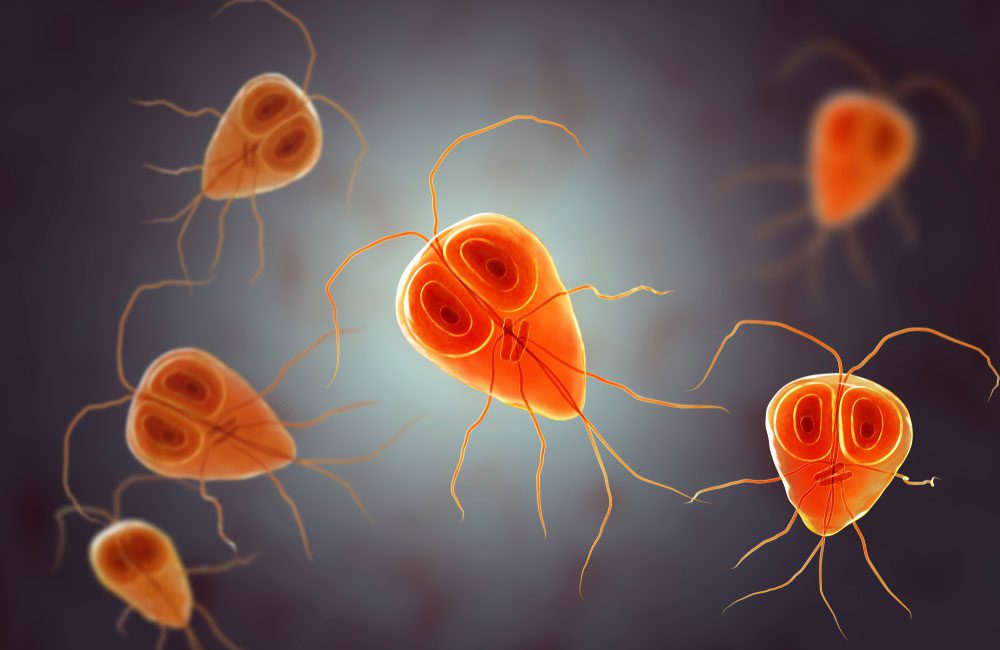What are the uninvited guests- parasites?
According to the Center for disease control and prevention, a parasite is an organism that lives on or in a host organism and gets its food from or at the expense of its host. The three main classes of parasites that can cause disease in humans are the protozoa, helminths, and ectoparasites.
Do we have intestinal parasites?
According to the Journal of Bacteriology and Parasitology ”Intestinal parasites are organisms that live in the gastrointestinal tract of animals, including humans”.
Parasites can live within the intestines for years without causing any symptoms. The two main types of intestinal parasites are helminths and protozoa.
Parasitic infections may be caused by intestinal helminths and protozoa. In developing countries protozoa parasites more commonly cause gastrointestinal infections compared to helminths.
Parasites – uninvited guests can cause a variety of symptoms such as fatigue, constipation, diarrhoea, vomiting, heartburn, stomach pain and loss of appetite.
Parasites can sometimes appear as digestive problems. For example, chronic diarrhoea is a common sign of parasites, but they can also cause a wide variety of other symptoms, such as: abdominal pain allergic reactions to foods, anaemia, bloating, bloody stools, chronic fatigue, constipation, cough, gas, Irritable Bowel Syndrome (IBS,) itching joint and muscle aches, nervousness, hives, infected gums, mucus in the stools, poor immune response, rashes, sleep disturbances, teeth grinding, fever and unexplained weight loss.
Parasites can deplete the body of nutrients such as vitamins A, B6, B12, potassium, calcium, and magnesium and overwhelm the immune system, which can lead to severe illness.
Symptoms can come and go depending on the life cycle of the parasite involved. Parasites are a “hidden” disease, because most people who have parasites don’t know it.
In addition, pets too can act as parasite hosts and pass them on to humans. Young animals, such as puppies and kittens, are more likely to be infected with ascarids and hookworms.
According to official CDC data: ”Trichomonas is the most common parasitic infection in the USA, accounting for an estimated 7.4 million cases per year. Giardia and cryptosporidium are estimated to cause two million and 300,000 infections respectively in the US annually”.
Cryptosporidiosis is the most frequent cause of recreational water-related disease outbreaks in the US, causing multiple outbreaks each year.
There are an estimated 1.5 million new toxoplasma infections and 400 to 4,000 cases of congenital toxoplasmosis in the US each year; 1.26 million persons in this country [US] have ocular involvement due to toxoplasmosis; and toxoplasmosis is the third leading cause of deaths due to food-borne illnesses (375+ deaths).
In the EU, the European Food Safety Authority (EFSA) was set up in January 2002 following a series of food crises, which have hardly subsided since then: mad cow/ sheep/goat disease, foot-and-mouth disease, bird flu and so on.
In its latest report, the EFSA says the most commonly reported zoonotic infections in humans in the EU are, by far: ‘… those caused by bacterial zoonotic agents that can be shed by asymptomatic farm animals: the 2004 data indicates salmonellosis (192,703 reported cases) and campylobacterosis (183.961) – followed by yersiniosis (10,381), human listeriosis (1,267), parasitic zoonoses is 2,349 (trichinellosis, toxoplasmosis and echinococcosis put together).
Parasites, thus, are everywhere and in their most pathogenic states cause havoc in body, mind and spirit, with doctors responding with a range of treatments intended to suppress the symptoms, while failing to attack their source – the parasites themselves.
Researchers are beginning to see how parasitic infections may mimic or be involved in diseases such as rheumatoid symptoms, chronic fatigue syndrome, crohn’s disease, ulcerative colitis, Irritable Bowel Syndrome, diarrhoea and arthritis.
So, what can we do about these parasites we carry?
If you want to eliminate of the parasites, you will need to follow a detox diet and a proper supplement protocol, take some herbs to eliminate parasites that we are accumulating from our food and environment on a daily basis.



